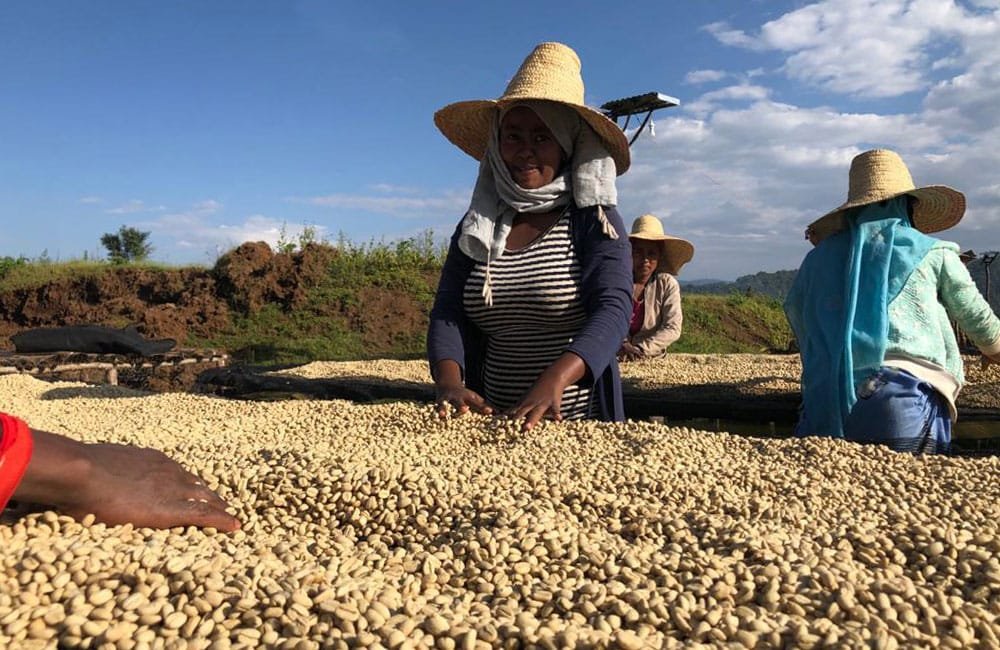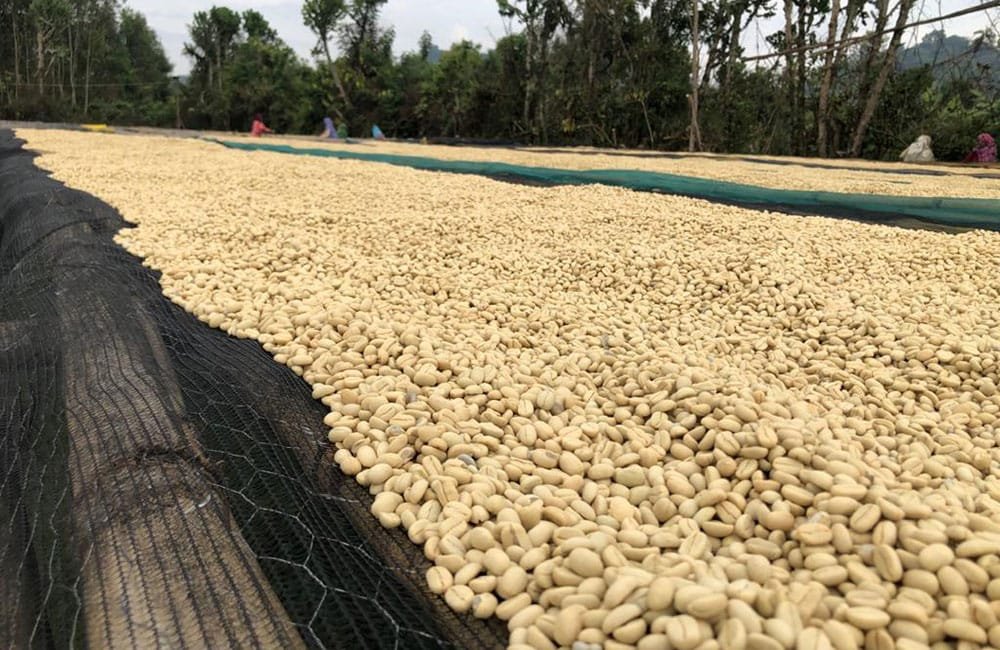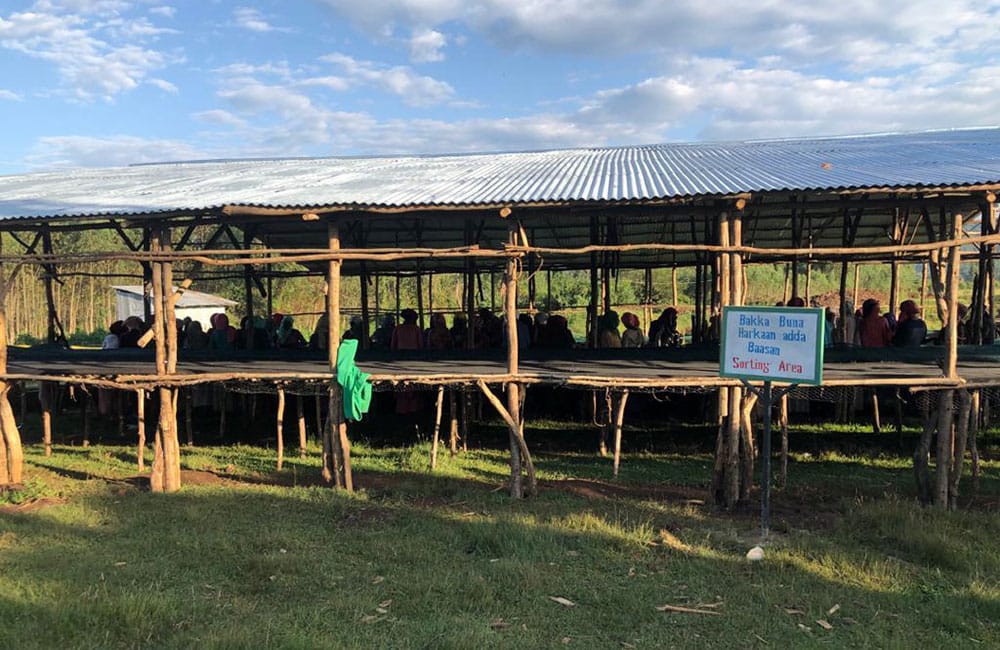Filter & Espresso
Peach compote, vanilla, tarte tatin
| Jimma | |
| 2,000 masl. | |
| Gibirinna 74110 & Serto 74112 | |
| Washed | |
| Smallholders |
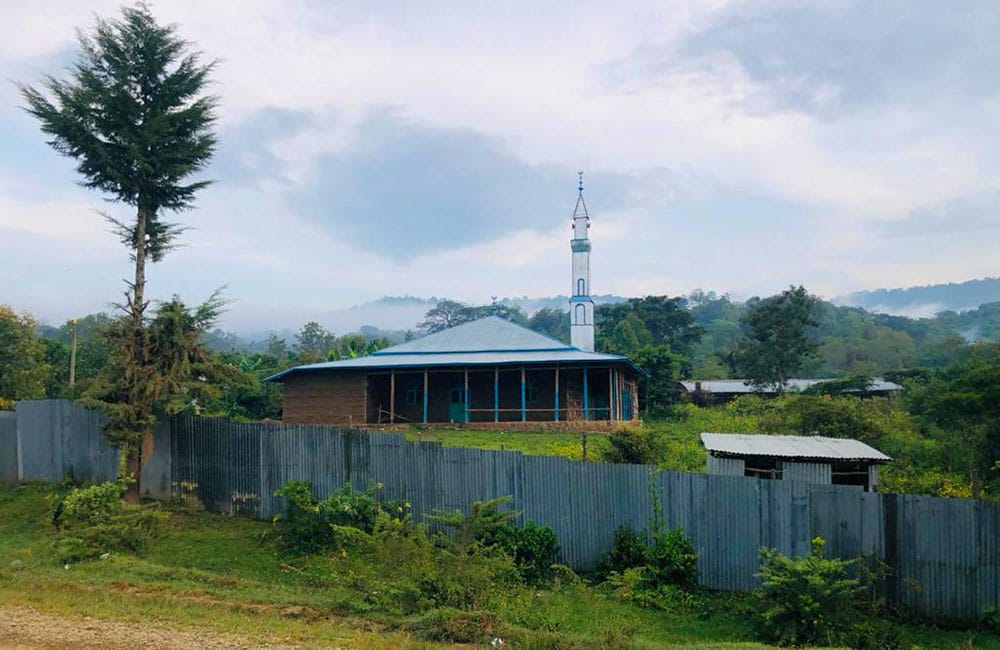
Telila is the name of the washing station where this Ethiopian coffee has been processed.
It is located in the town of Kecho Anderacha, part of the Gera province, in the Jimma region of Ethiopia.
The Jimma region is famous for its forests and abundant water.
Forests create the perfect conditions for organic matter, such as fallen leaves and dead trees, to compost and return their nutrients to the soil.
This cycle means soils rich in humus that provide nutrients to the coffee trees.
Coffee trees are grown at a height of about 2,000 metres above sea level.
This creates ideal climatic conditions for growing Arabica varieties.
The Telila washing plant
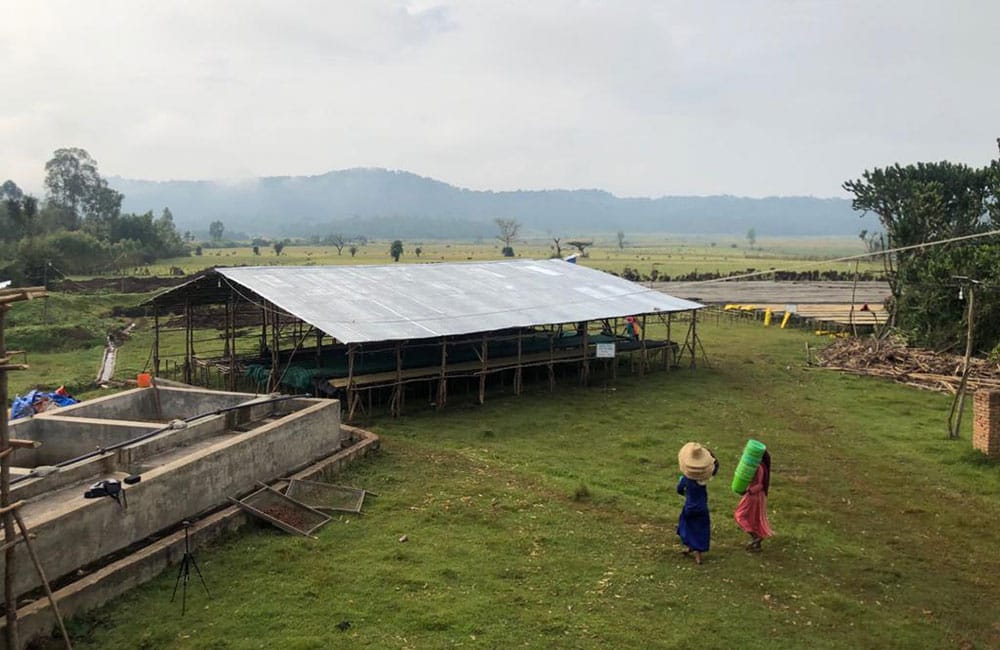
Telila is the washing station run by Mike Mamo, an agronomist specialising in the cultivation of specialty coffees.
He runs the family business that his father founded, Addis Exporter, 65 years ago.
Recently, in 2019, he took over the Telila washing station and, in 2020, he had his first production.
They work with more than 50 small farms in the surrounding area that are owned by local coffee farmers.

Mike focuses his work on extensive quality control and experimentation with new techniques to stay on the cutting edge of coffee processing.
They not only produce high quality washed batches, but also honey, natural and anaerobic fermentation process.
In his constant quest to improve quality, Telila innovates in many exciting ways.
For example, while most washing stations separate batches by type of processing and Kebele (small local administrative unit), in Telila they go a step further and separate batches according to the day of harvest too.
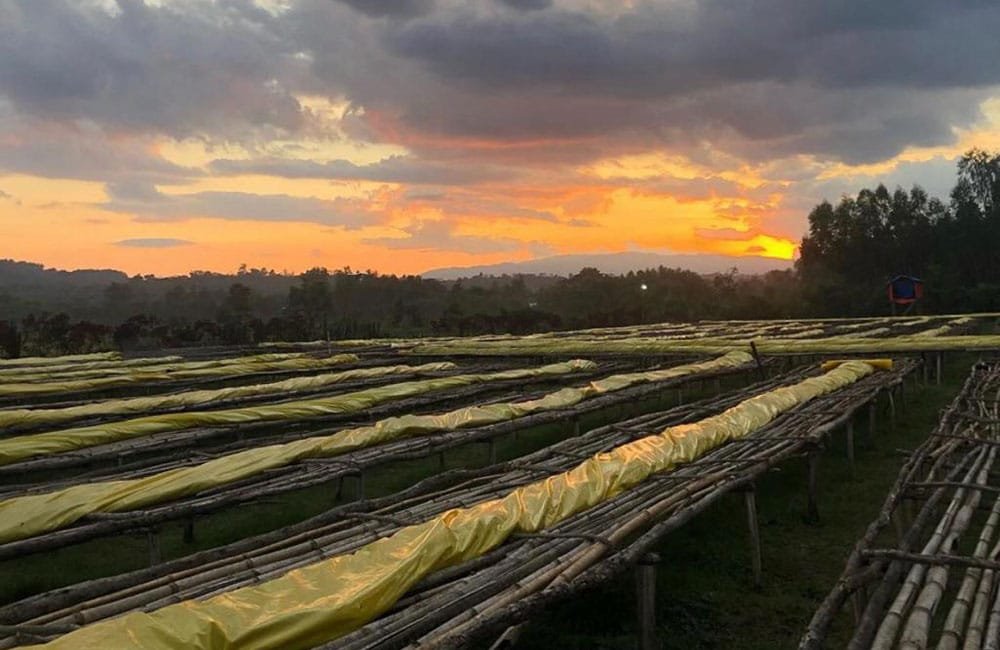
Another important improvement is the airtight packaging of parchment coffee before it is prepared for export, a first for Ethiopia.
It is the care for these small details throughout the chain that ultimately makes the difference in the quality of the cup.
Postharvest and processing

Most of the farms in this region are semi-forest systems, generally less than 1 hectare.
Farmers pick cherries selectively by hand and deliver their cherries to the washing station in Telila.
At the time of reception, the cherries floated in water tanks.
This is done to detect those that are not fully mature or have defects.
A visual inspection is also carried out.
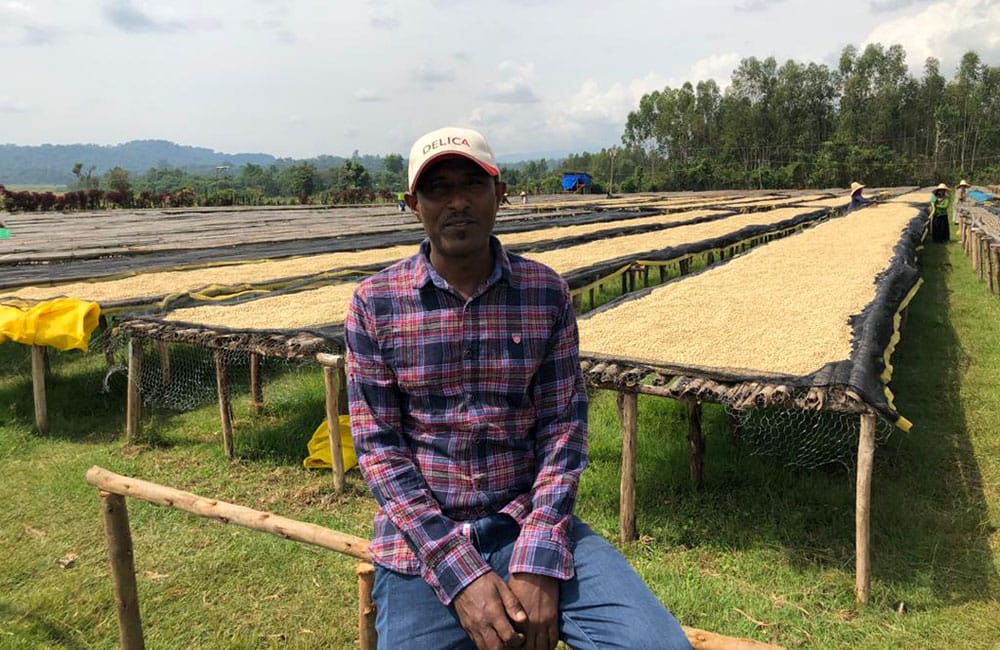
Then the cherry is pulped and undergoes a short fermentation before being washed again with clean water.
After this the cherries are moved to raised beds to dry.
In the raised beds, workers constantly check the seeds and volt them periodically to ensure even drying.
Generally, this process takes about ten days, although this depends on the temperature and the sun.
Ethiopian coffee
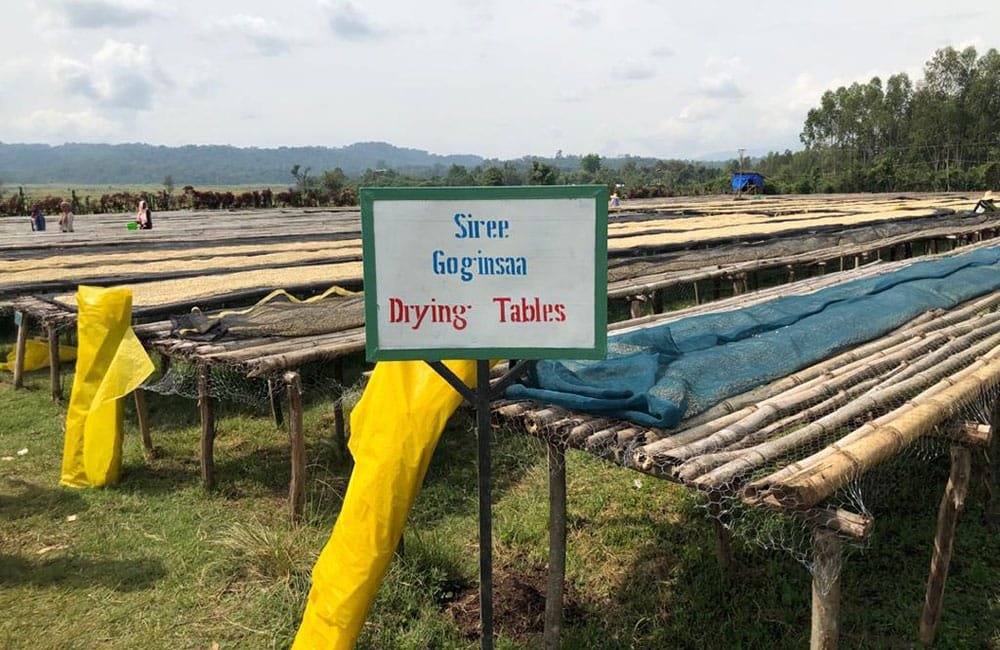
Ethiopia is famous for being the birthplace of coffee and for its quality.
Today, it is one of the favourite regions of many specialty coffee lovers due to the incredible variety and quality it offers.
The exceptional quality of Ethiopian coffee is due to a combination of factors.
Of course, the terrain, weather and altitude are part of it.
But the genetic diversity of similar coffee varieties means that we find a diversity of flavours, even between (or within) farms with different growing and processing conditions.
In addition to the varieties, the processing methods also contribute to the final quality.
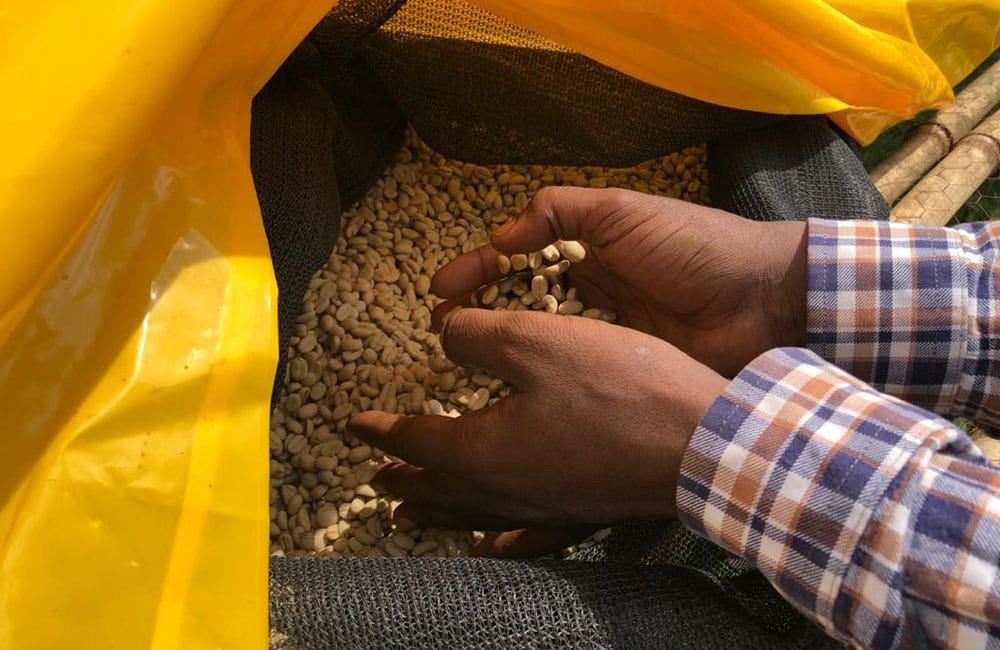
Another element that makes Ethiopian coffees great is the producing tradition that has created a know-how, genetic diversity, processing infrastructure and the great coffee we enjoy today.
Most of the producers in Ethiopia are small farmers and almost all of them work by growing coffee using traditional methods.
The result is that most coffee is grown without chemical fertilisers or the use of pesticides. Coffee is almost entirely grown, harvested and dried using manual systems.

